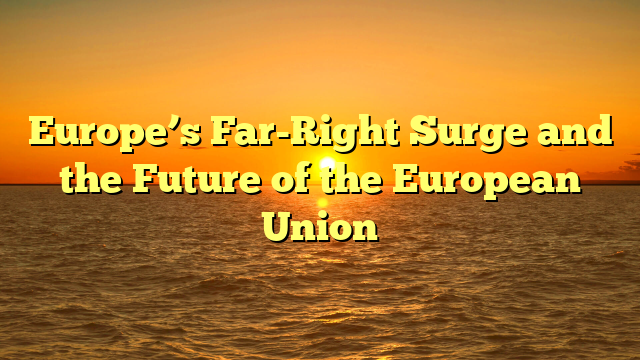Europe is witnessing a new wave of right-wing populism that threatens to reshape the continent’s political landscape. From Germany’s AfD to France’s National Rally and Italy’s Brothers of Italy, nationalist movements are gaining ground bonus Naga169 amid economic anxiety and immigration debates.
In recent European Parliament elections, far-right parties made significant gains, pressuring centrist governments to harden their stances on migration and EU integration. “This is not a temporary protest,” said political analyst Dr. Lucie Moreau. “It’s a structural shift in European politics.”
The EU now faces a legitimacy crisis, as populist leaders challenge Brussels’ authority on everything from border control to energy policy. Countries like Hungary and Poland have already tested the limits of EU cohesion with defiant domestic policies.
Economic disparities between northern and southern Europe also fuel resentment. Rising living costs, post-pandemic debt, and sluggish wage growth have left many voters disillusioned.
While mainstream parties attempt to adapt, experts warn that the far-right surge could weaken Europe’s collective response to global challenges — from Russian aggression to climate migration.
The question confronting the EU is not whether populism will persist, but how far it will redefine the European project itself.
